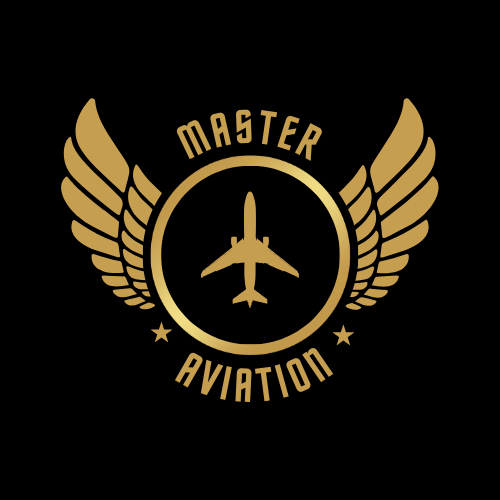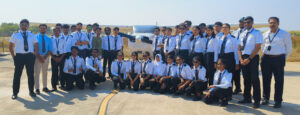Dreaming of soaring through the skies as a commercial pilot? Before you take control of an aircraft, there’s a crucial phase every aspiring aviator must conquer: CPL ground school. Many aspiring pilots focus on flight hours, but the real backbone of a Commercial Pilot License (CPL) is solid ground training. CPL ground classes lay the foundation for everything a pilot needs to know before stepping into the cockpit professionally.
In this blog, we’ll break down the essential subjects covered in CPL ground classes and explain why they’re an indispensable part of your journey toward earning your CPL.

Why CPL Ground Classes Are Non-Negotiable
Some might think flying is all about mastering the controls, but that’s just half the equation. Here are a few importance of CPL ground training in India:
1. They Lay the Theoretical Foundation for Flight
Think of ground school as the blueprint for your flying career. It teaches you the science behind flight, aircraft mechanics, air laws, and navigation, all of which are critical to becoming a competent pilot. Without this foundation, flying would be like trying to drive a car without understanding traffic rules.
2. They Prepare You for the Mandatory CPL Exams
Before you earn your Commercial Pilot License, you must pass rigorous theoretical exams set by aviation authorities. Subjects like Meteorology, Air Navigation, Technical General, and more are not just tested. They ensure every commercial pilot meets global aviation standards. You can check out our blog on how to prepare for a commercial pilot license (CPL) exam if you are getting ready for it!
3. They Enhance Decision-Making and Crisis Management Skills
In aviation, quick and informed decision-making can mean the difference between a routine flight and an emergency. CPL ground training helps pilots develop critical thinking and problem-solving abilities needed in high-pressure situations.
4. They Strengthen Your Communication with Air Traffic Control (ATC)
Every commercial flight involves constant communication with ATC and other aviation professionals. Ground classes cover aviation phraseology, radio telephony procedures, and emergency communication protocols, ensuring you sound professional and confident on the radio.
5. They Improve Flight Safety
Understanding regulations, emergency procedures, and aircraft systems makes pilots more confident and capable. Safety is the highest priority in aviation, and ground school plays a significant role in ensuring pilots are well-prepared.
Key Subjects Covered in DGCA CPL Ground Classes
CPL ground training is designed to ensure you become a well-rounded and knowledgeable aviator. Here’s a closer look at the essential subjects and what DGCA CPL ground classes syllabus covers:
1. Air Navigation
Pilots need to understand navigation principles, calculate routes manually, and handle in-flight diversions. This subject covers:
- Latitude and longitude
- Dead reckoning and pilotage
- Radio navigation aids (VOR, NDB, ILS)
- Flight planning and fuel calculations
- Chart reading and aeronautical decision-making
2. Aviation Meteorology
Weather conditions can make or break a flight. As one of the vital subjects covered in commercial pilot ground school, Aviation Meteorology lessons teach pilots how to predict weather patterns, avoid dangerous conditions, and read aviation weather reports. Topics include:
- Atmospheric pressure and wind patterns
- Cloud formations and turbulence
- Wind patterns and jet streams
- Thunderstorms, icing, and weather avoidance techniques
- Reading and interpreting METARs and TAFs
3. Air Regulations
Just like driving has traffic rules, aviation operates under strict international and national regulations. Pilots must be well-versed in:
- Rules of the air (ICAO and country-specific aviation laws)
- Airspace classifications and restrictions
- Licensing requirements and responsibilities
- Flight planning documentation and ATC communication
- Emergency protocols and legal consequences
4. Technical General
A great pilot understands the machine they’re flying. This subject covers:
- Aircraft structures and aerodynamics
- Engine types and performance
- Fuel and electrical systems
- Electrical and hydraulic systems
- Aircraft maintenance and emergency procedures
- Emergency procedures and aircraft limitations
5. Aircraft Technical
This particular exam is on testing the detailed knowledge of the specific aircraft you will operate. Important topics include:
- Systems and functions of the aircraft
- Safety checks and maintenance practices
- Emergency and troubleshooting procedures
- Performance and limitations characteristics
6. Flight Instruments and Systems
Modern aircraft come with complex avionics and digital displays. Pilots must know how to read and respond to:
- How to read and interpret cockpit displays
- The functioning of altimeters, gyroscopes, and autopilot systems
- The importance of redundancy in avionics
- Basic troubleshooting of instrument failures
- Glass cockpit and analog instrument variations
7. Human Performance & Limitations
Pilots aren’t robots. They must understand how fatigue, stress, and altitude impact their performance. Lessons cover:
- Effects of altitude on the body (hypoxia, spatial disorientation)
- Fatigue management and workload balancing
- Stress and decision-making under pressure
- Crew resource management (CRM) and teamwork in aviation
8. Operational Procedures
Every airline and aviation authority follows strict Standard Operating Procedures (SOPs). This subject prepares pilots for:
- Pre-flight planning and checklists
- Emergency procedures and checklists
- In-flight decision-making and risk assessment
- Airline operations and passenger safety protocols
- Flight duty time regulations and rest periods
How CPL Ground Classes Translate to Real Flying
CPL ground training shapes you into a professional pilot. Imagine encountering unexpected turbulence, an engine issue, or an air traffic control delay. Without solid ground knowledge, a pilot might panic. But with proper training, they can assess the situation, make informed decisions, and ensure a safe outcome. These are the real-world applications of CPL ground training that separate amateur pilots from professionals.
Pilots who excel in ground school often become better aviators because they understand the principles behind their actions. Airlines and flight schools value candidates who have a strong theoretical background alongside their flying skills.
How to Choose the Right CPL Ground School
Selecting the best CPL ground training institute is crucial to your success. When choosing where to complete your CPL theory training, consider:
1. Experienced Instructors
Look for schools with seasoned aviation professionals who bring real-world experience into the classroom.
2. Comprehensive Curriculum
Ensure the school covers all required subjects in-depth, with updated study materials and modern training methods that meet aviation authority standards.
3. Interactive Learning Methods
Engaging lessons, simulations, and real-world case studies make learning more effective.
4. Success Rate
A good ground school should have a high pass rate and a proven track record of students passing CPL exams on their first attempt.
5. Support System
Choose a school that provides mentorship, additional study resources, access to mentors, doubt-clearing sessions, career guidance, and exam preparation support.
Why Choose Master Aviation for Your CPL Ground Training?
As one of the best CPL ground training institutes in India, we build future airline captains. Our DGCA Ground School course is designed to help you master the theoretical knowledge required to pass your CPL exams with confidence.
- Top-Tier Faculty: Learn from experienced commercial pilots and aviation experts.
- Exam-Focused Training: Structured courses designed to maximize your performance in CPL exams.
- Practical Learning Approach: Real-world case studies, interactive discussions, and flight simulations.
- Student Success Rate: Our graduates have a high pass rate with a proven track record of clearing DGCA papers on their first attempt.
Whether you’re just starting your journey or looking to refine your aviation knowledge, Master Aviation’s CPL Ground Classes will set you on the right path.
To Sum Up
CPL ground classes are not just a box to tick before earning your wings. They are the knowledge powerhouse behind every skilled commercial pilot. From air law to meteorology, every subject plays a critical role in shaping a competent and confident aviator. And it all starts with solid ground training. Choose the right training provider, commit to learning, and your journey to becoming a commercial pilot will be as smooth as a well-planned flight.
If you’re serious about earning your Commercial Pilot License, the right ground training will set the foundation for your success. And if you’re looking for the best pilot ground training, Master Aviation is where your journey begins.
FAQs
1. How long is the duration of CPL ground classes in India?
The duration varies, but typically, CPL ground school takes 3-6 months, depending on the course structure and student pace.
2. Is CPL ground school difficult?
While challenging, CPL ground school is manageable with dedicated study and expert guidance.
3. What if I fail my CPL theory exams?
Don’t worry! You can retake the exams after proper revision. At Master Aviation, we provide one-on-one mentoring and revision classes to help you succeed.
4. Do airlines check my CPL ground school performance?
Yes, airlines value strong theoretical knowledge as it reflects your understanding of aviation fundamentals. Excelling in ground school enhances your employability and interview performance.
5. Is CPL ground school the same worldwide?
While core subjects remain similar, regulations may vary by country. Master Aviation tailors training to meet international standards, ensuring you’re well-prepared anywhere.


